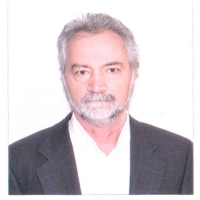Loading
Journal of Experimental Pathology
ISSN: 2694-5061
Editor Info

Aurel Popa-Wagner
Chair of Vascular Neurology and Dementia
Essen University Medical School
Germany
Academic Editor
Biography
Prof. Popa-Wagner’s group is concerned with cellular and molecular mechanisms underlying aging progression and its significance for brain diseases. Recent research is focused on cellular therapy of stroke by a variety of stem cells and mesenchymal stem cells-derived exosomes. Dr. Popa-Wagner received his PhD in biochemistry at Institute of Biochemistry, University of Karlsruhe, Germany, followed by postdoctoral training at Ethel Percy Andrus Gerontology Center, University of Southern California, Los Angeles, USA. Recently, he joined the group of Vascular Neurology and Dementia at the Clinic of Neurology, Medical University, Essen, Germany.
Research Interest
The aim my group is to unravel cellular and molecular mechanisms underlying aging progression and its significance for brain diseases. The group has a long-standing interest in molecular mechanisms of brain remodelling in the aged brain. My group has studied the plasticity of the aging brain in response to stimuli on a background of comorbidities for more than 15 years and to stroke injury for the last 10 years. Neuroinflammation is also at the core of our studies. Recently, we became interested in the treatment of stroke, experimentally, using hypothermia, caloric restriction and stem cells. Overall our results suggest that: (1) although older animals retain the potential for brain plasticity-related cytogenetic events after injury, the expression of key brain plasticity-associated genes and proteins is often attenuated and temporally altered; (2) an important cellular event associated with restricted axonal growth after stroke in aged animals is the early formation of a scar in the infarcted region; (3) Granulocyte-Colony Stimulating Factor lowers mortality and enhances neurogenesis in the brains of post-stroke aged animals; (4) vascular wall reactivity is exacerbated in the post-stroke aged animals. (5)The aged brain can still respond to cellular therapies.
About Scientific Archives
Scientific Archives is a global publisher initiated with the mission of ensuring equal opportunity for accessing science to research community all over the world. Spreading research findings with great relevance to all channels without any barrier is our goal. We want to overcome the challenges of Open Access with ensured quality and transparency.
